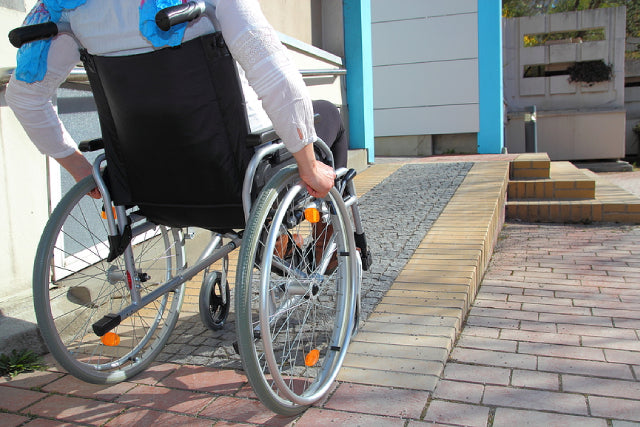
Losing one’s mobility is not the easiest thing to accept, especially when it is a common ageing factor. Hence, it is vital that we, as children, ensure that an effective care plan for your parents is created.
Being a wheelchair user can be both mentally and physically challenging. Wheelchair users often struggle with not being in control of their lives and that they are different from the rest of the community.
One of the most significant challenges that wheelchair users face in their daily lives is the associated stigma that their disability might bring about, making it more complicated to be comfortable and confident in public.
Here at Falcon Mobility, we make it a point to bring confidence and comfort back into their lives through the use of mobility aids that are tailored to their specific needs. Gaining confidence and overcoming challenges as wheelchair users is definitely not straightforward. However, it is not impossible. By reading this post, you can begin to feel more independent and confident.
The stigma of wheelchair users
The thing about challenges and stigmas that wheelchair users have to face everyday is that society, as it is now, is still not as accommodating and inclusive, often forgetting about them in their designs. While it is getting better, some places are still not as accessible for wheelchair users as they are for non-wheelchair users.
The challenges of using a wheelchair
The design of wheelchairs makes certain places out of bounds to wheelchair users. For example, some wheelchairs are not as transportable due to their larger weight and sizes. As such, most wheelchair users need to hire wheelchair-friendly vehicles, which may cost slightly more than regular cars.
Additionally, whether you are using a motorised or manual wheelchair, users might face issues, such as exhaustion, blisters, dirty hands, or reliance on a caregiver if they are pushing themselves, or running out of power for motorised users.
How travel and transit wheelchairs can make transportation simpler
The issue with conventional wheelchairs, as we mentioned earlier, is that it can be bulky and large, making them harder to fit into public transports and cars. The typical wheelchairs that you find in hospital weigh about 20kg and are made of steel.
However, pushchairs and ultra-light wheelchairs can be carried in car boots and brought along for travel easily. They are typically made of lightweight aluminium, weighing about 6-12kg. This makes it easier for wheelchair users to travel independently, participating in usual activities that they enjoy.
How motorised wheelchairs can inspire independence
The thing with travel and transit wheelchairs is that they require additional help to push the user. They are beneficial if the user has significant limitations in their mobility and has to rely on their caregiver’s assistance. However, if they still retain certain levels of mobility, they can impede their independence significantly.
As such, motorised wheelchairs are ideal PMAs for them. They can easily be manoeuvred through tight spaces and are also suitable for both outdoor and indoor use. All the users need to do to move their motorised wheelchair is the push of a joystick.
Conclusion
It is inevitable that with limited or loss of mobility comes a drop in confidence. However, there are modern solutions that can help connect these people with the community, and they are personal mobility aids.
Whether you are looking for a travel wheelchair or a mobility scooter for the elderly, Falcon Mobility has got everything you need. In fact, we understand that mobility and independence are vital. As such, we specialise in foldable, portable, and lightweight wheelchairs that are highly transportable, being able to bring onboard planes, trains, buses, and cars. Contact us today to find out more!

